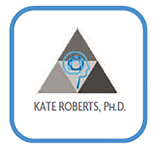by Michael F. Mascolo, Ph.D.
North Shore mom, Brooke Carnap, was shocked when her daughter, Mattie, came home with a grade of 59 on her 6th grade Social Studies test. “But I know Mattie studied. I saw her reading her textbook and looking over her notes. I can’t understand why she wasn’t ready for the test. In elementary school, Mattie was considered a good reader. In middle school, her grades are slipping and it’s hard to figure out why.”
Does your child know how to read? What a stupid question! Of course she does. She learned to read in the second grade, so she’s all set! Or is she?
Children learn to decode words in the first years of school. They learn how to read words and sentences. But reading words and sentences is not the same as reading paragraphs, stories, essays, technical manuals, cereal boxes, road maps and Letters from the Editor – not by a long shot. Real reading is reading for comprehension. Just because a child or adult can read the words doesn’t mean that they can understand what they read. This is especially true when it comes to the higher grades – middle school, high school, college and well, life.
There’s a reason that they speak of reading, ‘riting and ‘rithmetic. They are foundational skills. If a child does not acquire solid reading skills, he or she will experience difficulty in all areas, both in and out of school. Here’s why: Imagine that your child has a test coming up in history, social studies or science. She will have to study hard for the test. What does it mean to study?
When we take a test, we study in order to organize our understanding of what we have learned so that we may retain it and express our understanding on the test. What does it mean to read for comprehension? Reading for comprehension means organizing our understanding of what we are reading. Again, reading is not decoding words. Reading involves understanding ideas and making connections among them. Reading means using our present understanding and vocabulary in order to understand what is on the page. Reading means keeping in mind what we read at the beginning of an article in order to understand what comes later. Reading means organizing what is on the printed page.
That’s what we do when we study! That’s why most study problems are reading problems. Teach a child to read and you’ll arm him for schoolwork in all areas.
Here’s a little truth that you might be surprised to learn. Many students in college never open a book! No – I don’t mean that they don’t read for pleasure outside of their class assignments. They don’t read their material assigned for their classes! Why would they make such a foolish choice? Believe it or not, they come by it honestly. It’s not entirely their fault. Here’s what happens:
1. Students come to college with poor reading skills.
2. Instructors cannot rely upon students to read and understand assigned material.
3. As a result, instructors “lecture” on the ideas that will be “on the test”.
4. Instructors give students copies of their own PowerPoint presentations. Students use these instead of taking notes.
5. As a result, students learn – erroneously – that they don’t need to read the book.
6. As a result, instructors find that they cannot rely upon their students to understand assigned readings; instructors “lecture” on what will be on the test; students don’t read the assignments, and it spirals out of control.
College students don’t know how to read for comprehension. The cycle begins well before the college years. In this issue, Master Teacher Denise Granniss talks about the importance of motivating middle school students to read, and to read well. We can all profit from her wisdom.

















